*NURSING > QUESTIONS & ANSWERS > Psychiatric-Mental Health Nursing 8th edition by Videbeck Test Bank (All)
Psychiatric-Mental Health Nursing 8th edition by Videbeck Test Bank
Document Content and Description Below
1. The nurse is assessing the factors contributing to the well-being of a newly admitted client. Which of the following would the nurse identify as having a positive impact on the individual's menta... l health? A) Not needing others for companionship B) The ability to effectively manage stress C) A family history of mental illness D) Striving for total self-reliance 2. Which of the following statements about mental illness are true? Select all that apply. A) Mental illness can cause significant distress, impaired functioning, or both. B) Mental illness is only due to social/cultural factors. C) Social/cultural factors that relate to mental illness include excessive dependency on or withdrawal from relationships. D) Individuals suffering from mental illness are usually able to cope effectively with daily life. E) Individuals suffering from mental illness may experience dissatisfaction with relationships and self. 3. Which of the following are true regarding mental health and mental illness? A) Behavior that may be viewed as acceptable in one culture is always unacceptable in other cultures. B) It is easy to determine if a person is mentally healthy or mentally ill. C) In most cases, mental health is a state of emotional, psychological, and social wellness evidenced by satisfying interpersonal relationships, effective behavior and coping, positive self-concept, and emotional stability. D) Persons who engage in fantasies are mentally ill. 4. A client grieving the recent loss of her husband asks if she is becoming mentally ill because she is so sad. The nurse's best response would be, A) ìYou may have a temporary mental illness because you are experiencing so much pain.î B) ìYou are not mentally ill. This is an expected reaction to the loss you have experienced.î C) ìWere you generally dissatisfied with your relationship before your husband's death?î D) ìTry not to worry about that right now. You never know what the future brings.î 5. The nurse consults the DSM for which of the following purposes? A) To devise a plan of care for a newly admitted client B) To predict the client's prognosis of treatment outcomes C) To document the appropriate diagnostic code in the client's medical record D) To serve as a guide for client assessment 6. Which would be a reason for a student nurse to use the DSM? A) Identifying the medical diagnosis B) Treat clients C) Evaluate treatments D) Understand the reason for the admission and the nature of psychiatric illnesses. 7. The legislation enacted in 1963 was largely responsible for which of the following shifts in care for the mentally ill? A) The widespread use of community-based services B) The advancement in pharmacotherapies C) Increased access to hospitalization D) Improved rights for clients in long-term institutional care 8. Which one of the following is a result of federal legislation? A) Making it easier to commit people for mental health treatment against their will. B) Making it more difficult to commit people for mental health treatment against their will. C) State mental institutions being the primary source of care for mentally ill persons. D) Improved care for mentally ill persons. 9. The goal of the 1963 Community Mental Health Centers Act was to A) ensure patients' rights for the mentally ill. B) deinstitutionalize state hospitals. C) provide funds to build hospitals with psychiatric units. D) treat people with mental illness in a humane fashion. 10. The creation of asylums during the 1800s was meant to A) improve treatment of mental disorders. B) provide food and shelter for the mentally ill. C) punish people with mental illness who were believed to be possessed. D) remove dangerous people with mental illness from the community. 11. The major problems with large state institutions are: Select all that apply. A) attendants were accused of abusing the residents. B) stigma associated with residence in an insane asylum. C) clients were geographically isolated from family and community. D) increasing financial costs to individual residents. 12. A significant change in the treatment of people with mental illness occurred in the 1950s when A) community support services were established. B) legislation dramatically changed civil commitment procedures. C) the Patient's Bill of Rights was enacted. D) psychotropic drugs became available for use. 13. Before the period of the enlightenment, treatment of the mentally ill included A) creating large institutions to provide custodial care. B) focusing on religious education to improve their souls. C) placing the mentally ill on display for the public's amusement. D) providing a safe refuge or haven offering protection. 14. The first training of nurses to work with persons with mental illness was in 1882 in which state? A) California B) Illinois C) Massachusetts D) New York [Show More]
Last updated: 2 years ago
Preview 1 out of 334 pages

Buy this document to get the full access instantly
Instant Download Access after purchase
Buy NowInstant download
We Accept:

Reviews( 0 )
$18.00
Can't find what you want? Try our AI powered Search
Document information
Connected school, study & course
About the document
Uploaded On
Jul 18, 2022
Number of pages
334
Written in
Additional information
This document has been written for:
Uploaded
Jul 18, 2022
Downloads
0
Views
70

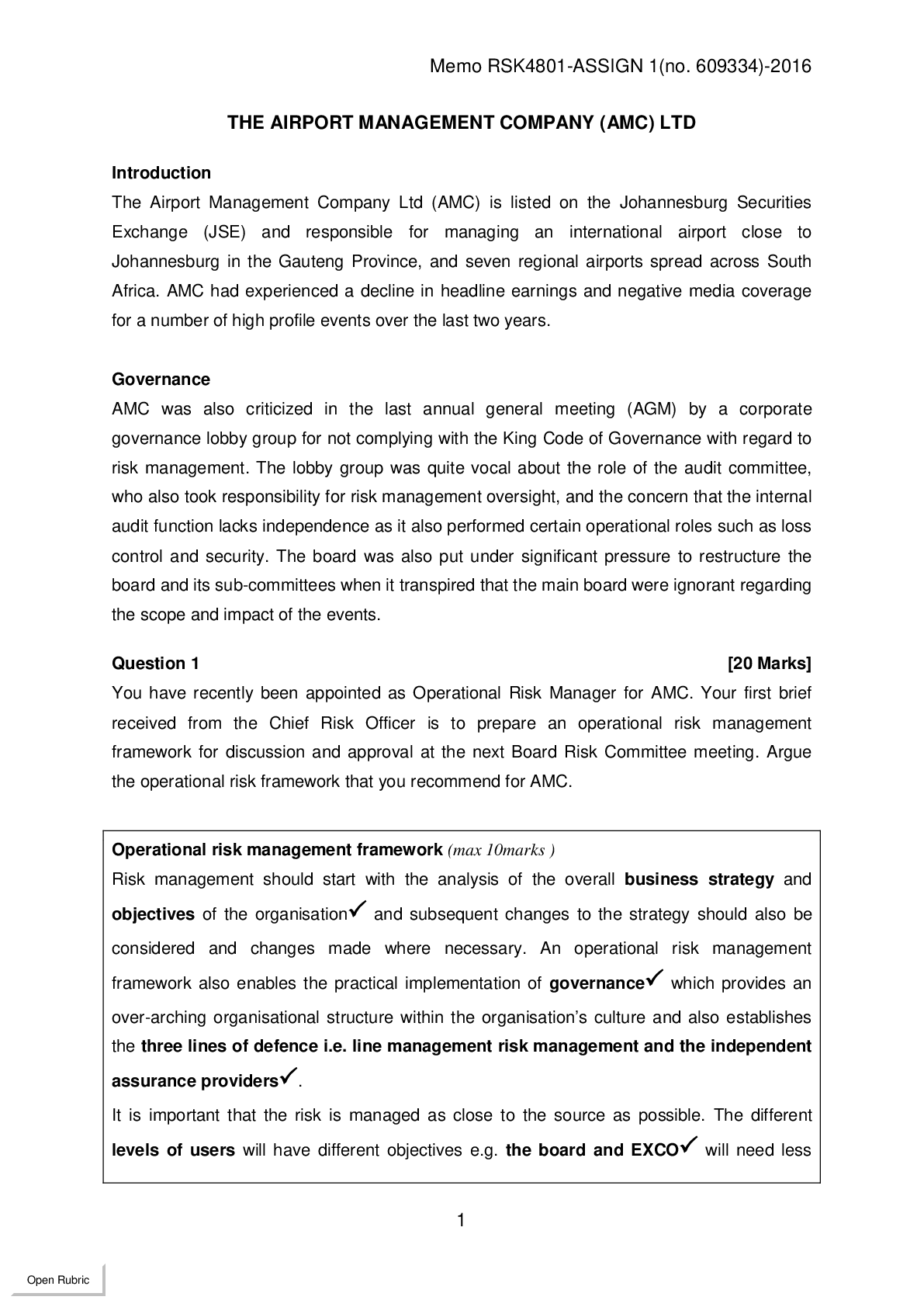


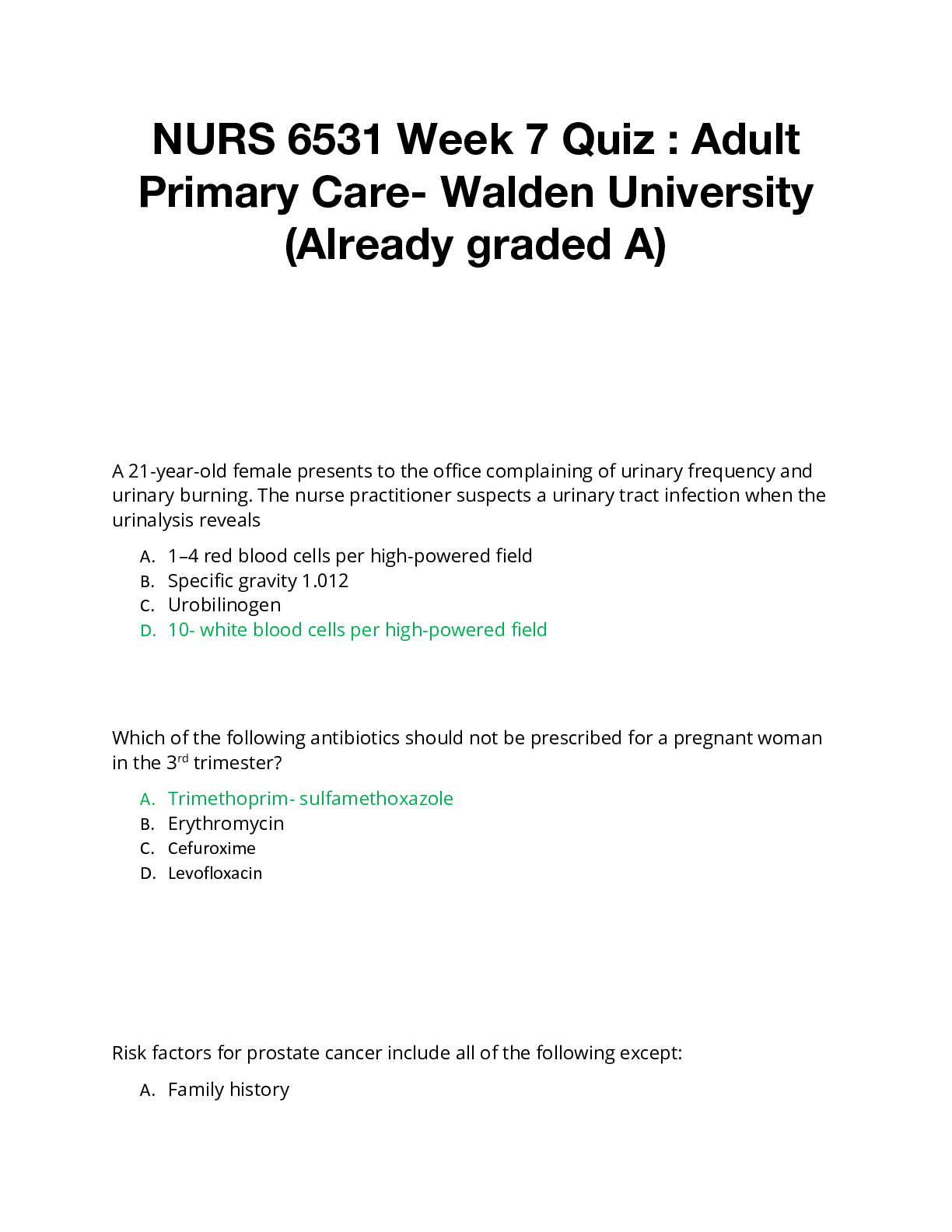

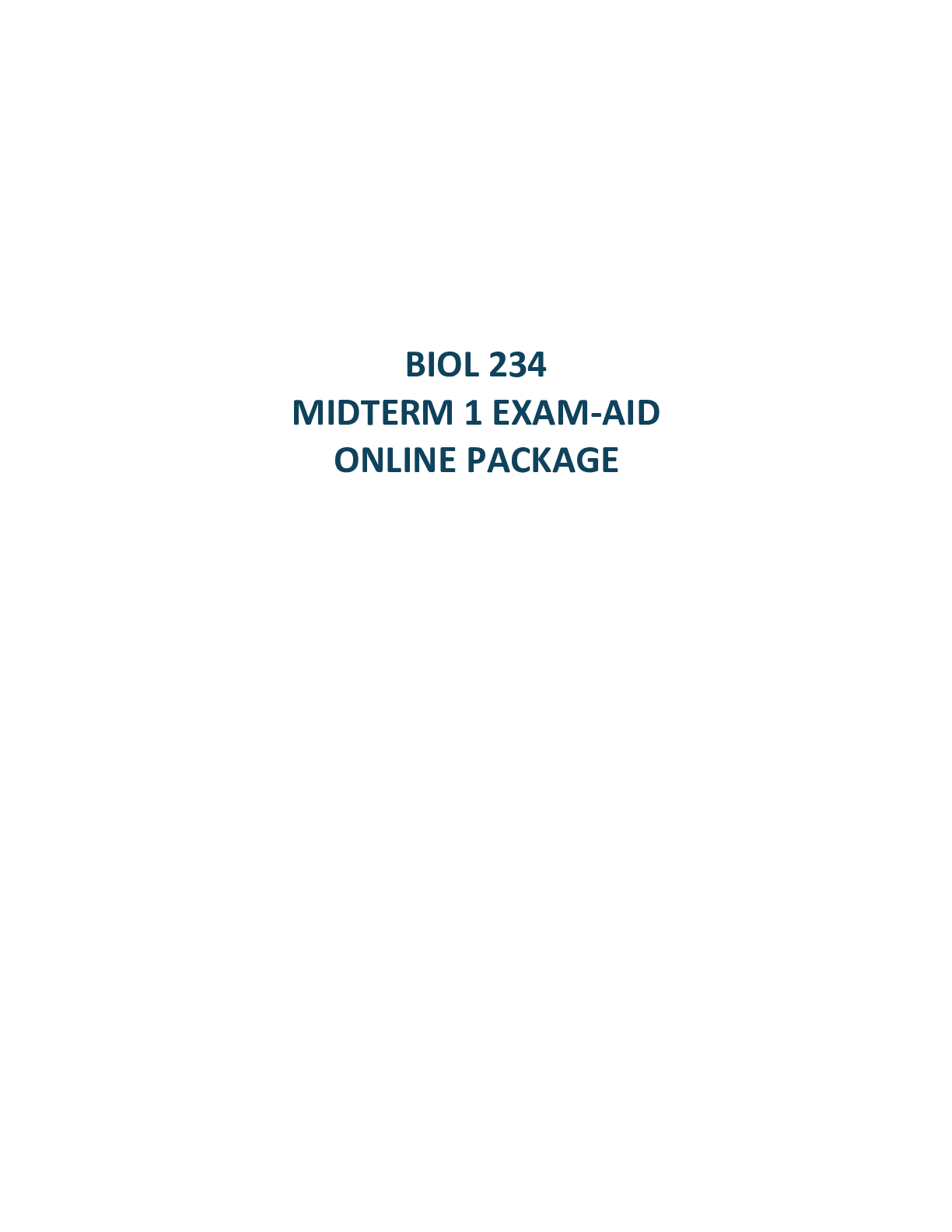




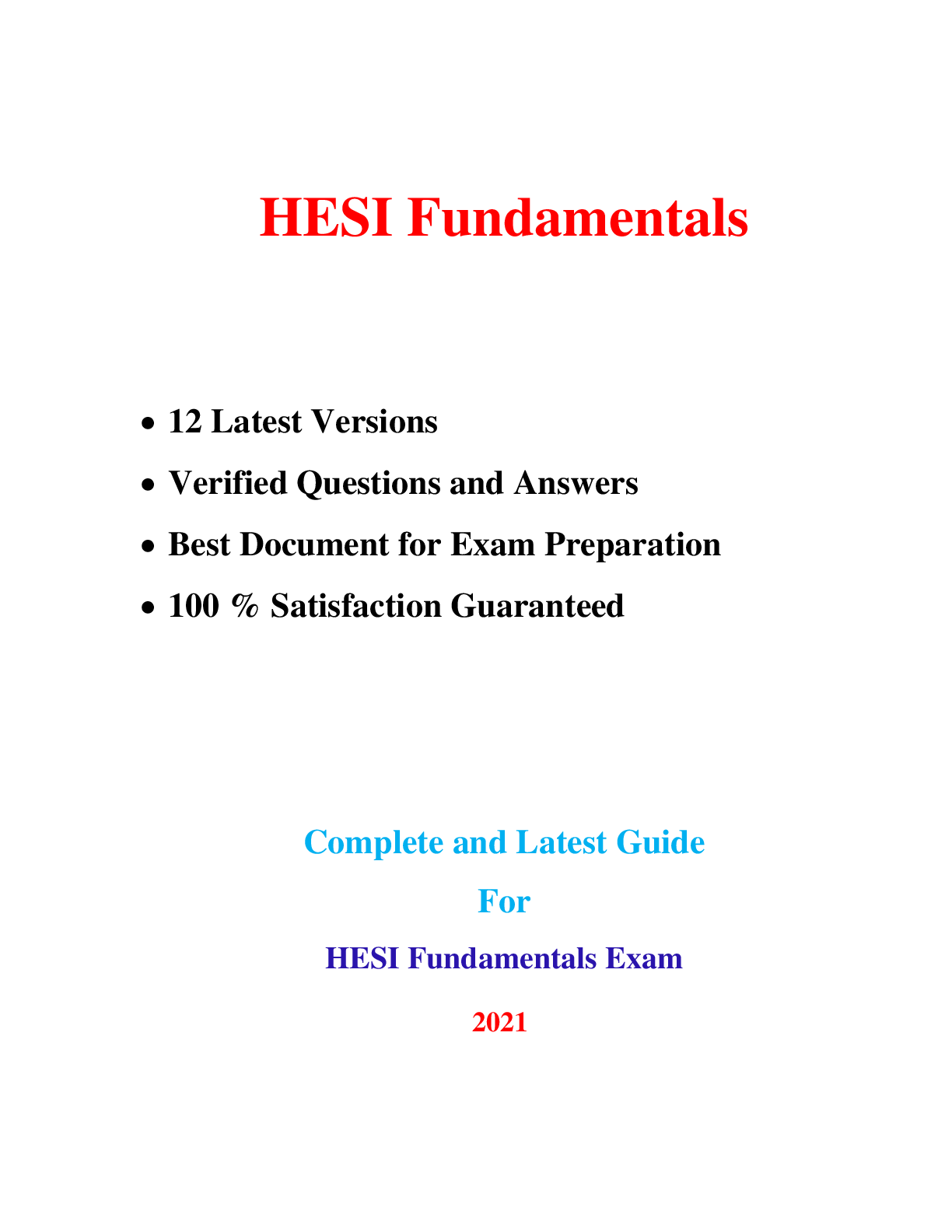
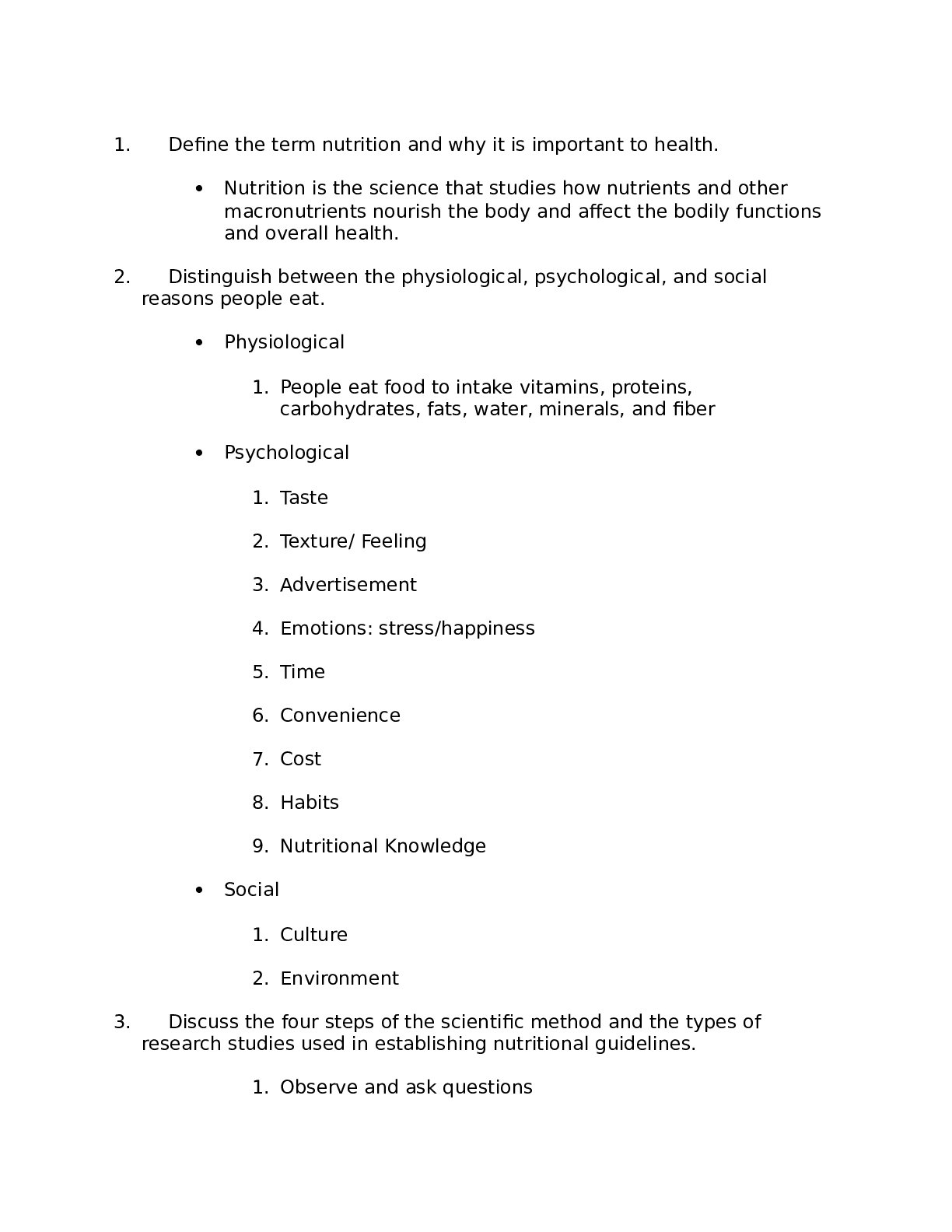
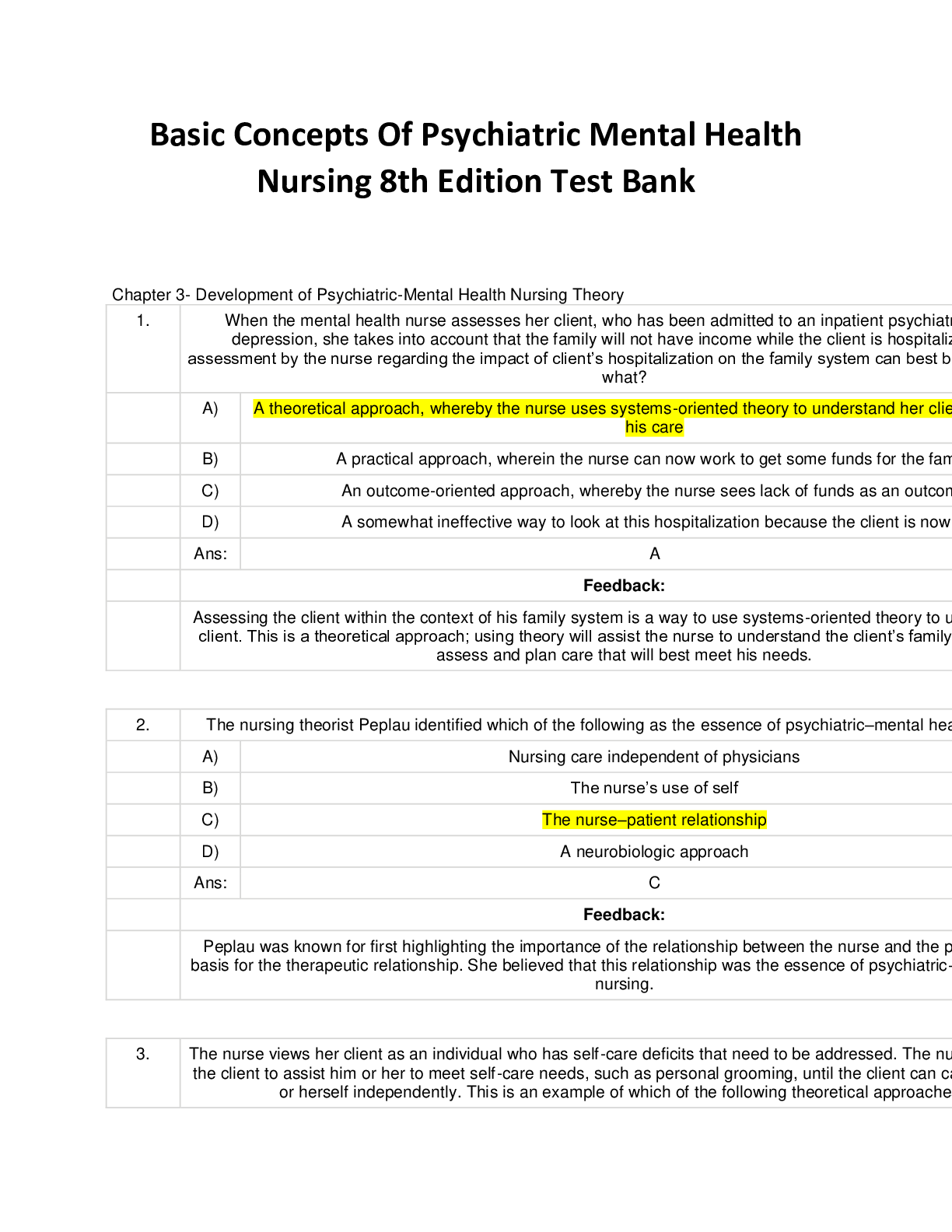
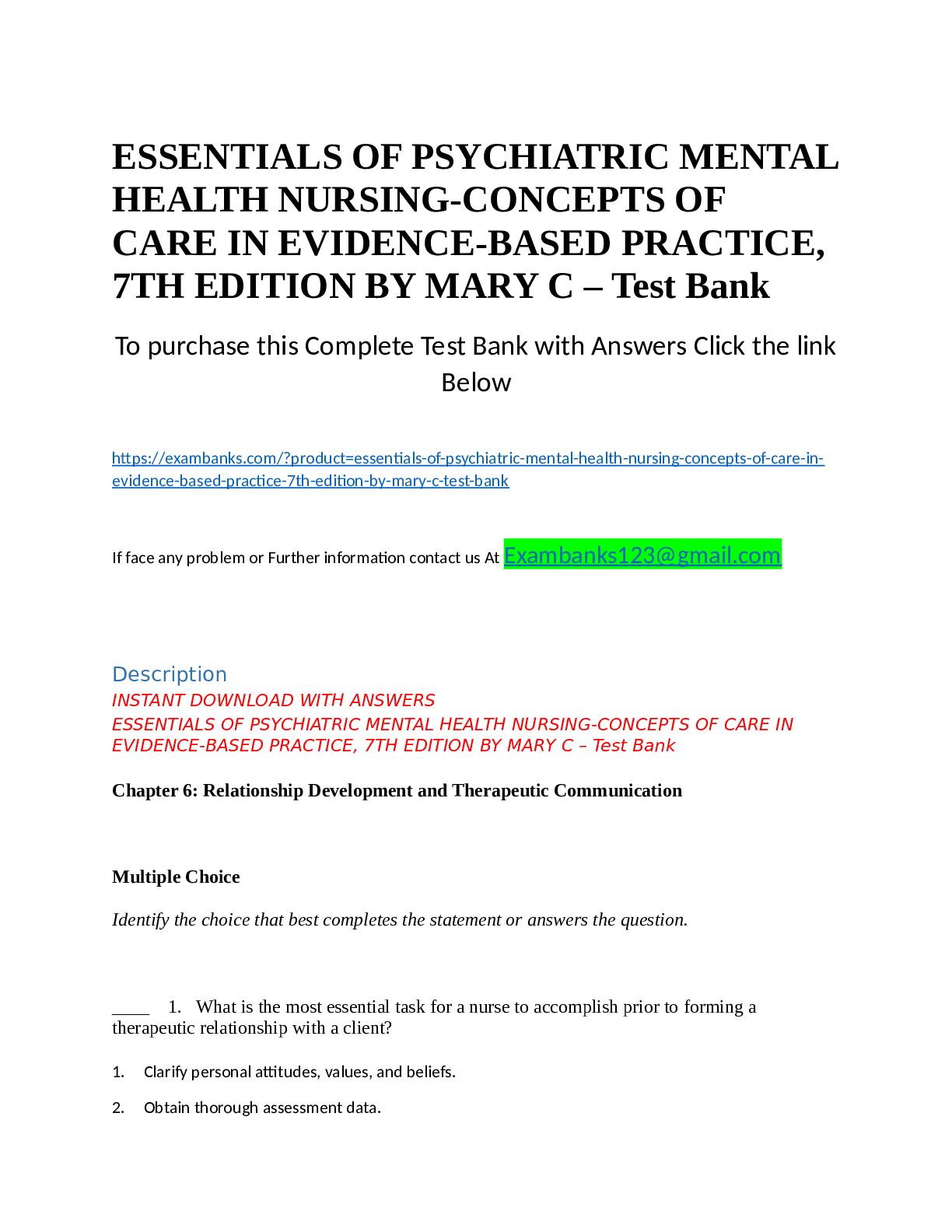


, (A Grade), Questions and Answers, All Correct Study Guide, Download to Score A.png)
.png)



